Why Do Dogs Lick Their Beds? A Comprehensive Guide
Dogs are known for being lickers. Whether it’s their water dish, your face, or – in some cases – their bed, dogs seem to love putting their tongue all over things. The question Why Do Dogs Lick Their Beds is a frequent one among pet owners, and the answer may be perplexing. In this comprehensive guide, we will answer all of your questions about why dogs lick their beds and provide useful tips on how to stop this behavior!
Reasons for Licking the Bedsheet
Dogs might lick their beds for numerous reasons. They could be bored, anxious, or it could simply be a way to pass the time. However, there are a few primary reasons that your dog may lick their bedsheets:
Your dog may be bored and attempt to entertain themselves by lapping their bed. If you don’t provide them with enough mental stimulation throughout the day, they may start licking things out of boredom.
Another reason for licking could be anxiety or stress. This is more common in rescue dogs or those that have experienced trauma in their past. When dogs are anxious, they often display what’s called ‘displacement behaviour.’ This means they do things that make them feel better in the moment, even if it’s not something they would normally do. For some dogs, licking their bedsheets helps to calm them down and ease their anxiety.
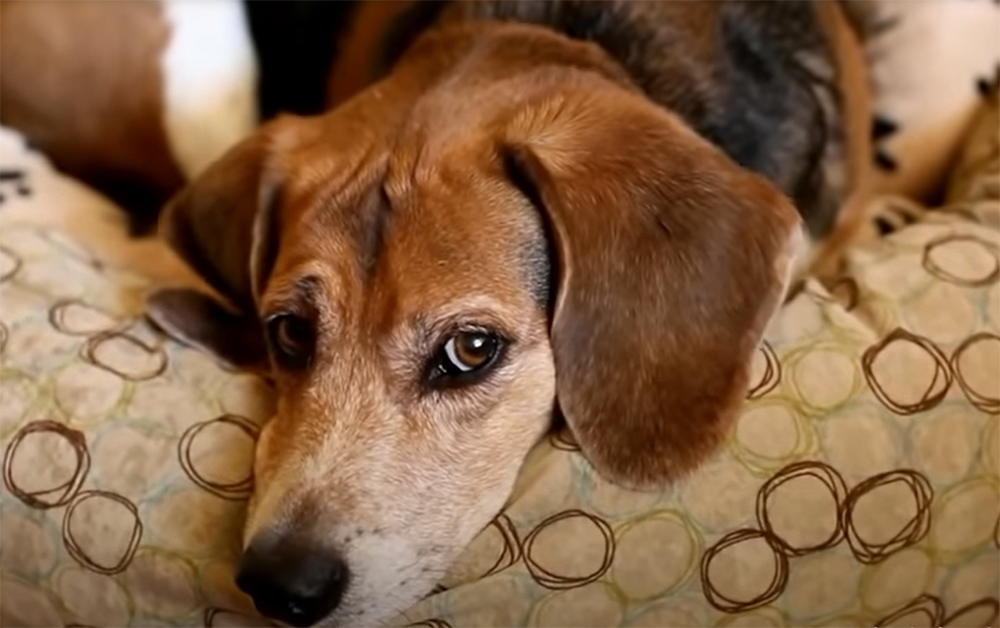
The last common reason for licking beds is due to a medical condition called pica. Pica is defined as ‘the persistent eating of non-food items.’ In other words, your dog may be licking their bed because they’re actually hungry and their body is trying to tell them to eat something. This is usually seen in puppies or young dogs that are still growing and need more nutrients than an adult dog. If you think your dog may be displaying pica behaviour, it’s best to speak to your veterinarian about it. [1]
Exploration
Some experts think that dogs’ beds are licked to explore their surroundings. Licking is one method for dogs to explore their environments because they have a fantastic sense of smell. This is especially true if you’ve recently changed your laundry detergent or bedding material. Your dog may be trying to figure out what the new smell is by licking it.
Licking can also be a form of self-soothing for dogs. If they’re feeling anxious or stressed, licking their bedsheets may help to calm them down. It’s similar to how humans like to fiddle with things when they’re nervous or have idle hands. Dogs may also lick their beds as a means of seeking attention from their owners.
They Smell You
If you’ve noticed that your pet is more likely to lick their bed, it’s possible that they’re lonely and attempting to console themselves with the smell of you.
Bad Behavior Unknowingly Rewarded
If you scold your dog for lapping its bed, it may believe this is the only method to get your attention.
Even if you don’t mean to, you could be rewarding your pet’s bad behavior by giving them any type of reaction (positive or negative) while they licking the bed.
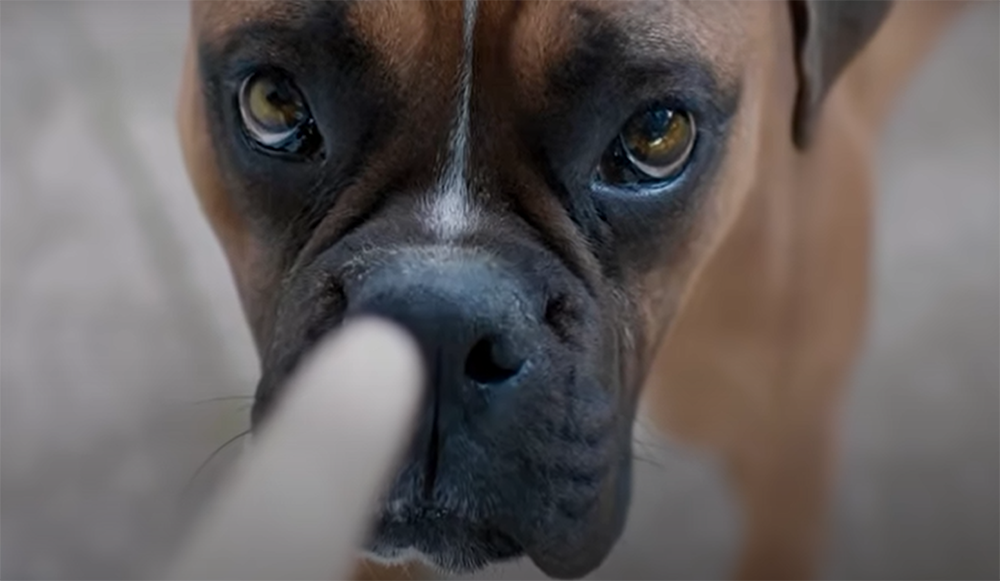
To avoid this, it’s important to ignore your pet completely during this process. This includes making eye contact, speaking to them, or even touching them. Once they stop licking their bed, then you can give them the attention they crave.
Remember, dogs are experts at reading our body language and can sense when we’re angry, happy, or upset. So if you give them any type of reaction during the licking process, they’ll think it’s acceptable behavior.
Feeling of Isolation
Dogs frequently lick their beds as a result of feeling lonely. If your pet is used to sleeping in your bed and then begins sleeping in their own, they might be lashing out by licking their bed as a method of coping with loneliness. Dogs are social animals that benefit from companionship. It’s critical to ensure they get adequate attention since they enjoy spending time with others. You can do this by taking them for walks, playing with them, and spending time cuddling with them.
Easing Tension and Stress
Licking their beds may be a method to release tension and stress in dogs. When a pet is anxious, they may start licking their lips or the area around their mouths. This can help to calm them down and make them feel more comfortable. Dogs may also use their tongues to relax and calm down when they’re feeling overwhelmed or anxious.
It’s important to remember that not all dogs will react to stress in the same way. Some may become aggressive, while others may cower and hide. If your pet is licking their bed excessively, it’s best to consult with a veterinarian or animal behaviorist to rule out any underlying medical conditions or psychological issues. With the help of a professional, you can develop a plan to help your dog feel more comfortable and relaxed.
Obsessive/Compulsive Behavior
Dogs engage in all sorts of licking behaviors, but some dogs develop what seems to be an obsessive need to lick. If your pet is licking his bed excessively, it could be a sign of underlying anxiety or stress. Compulsive licking can also be a symptom of allergies or other medical conditions. If you’re concerned that your dog’s licking behavior is out of the ordinary, it’s best to consult with your veterinarian. [2]
Separation Anxiety
Out of boredom or separation anxiety, dogs frequently lick their beds. If your pet is left alone for long periods of time, they may start to lick their bed as a way to self-soothe and pass the time.
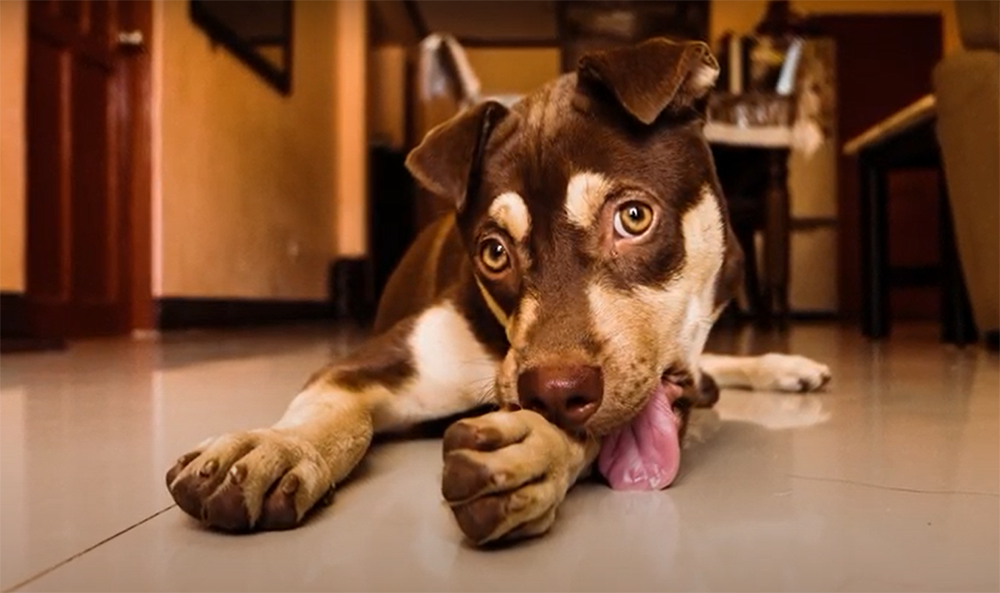
There are a number of things you can do to help alleviate your dog’s boredom, such as:
- Providing them with puzzle toys that dispense treats
- Taking them on more walks or runs
- Adding an additional playtime to their daily routine
If your dog is displaying other signs of separation anxiety, such as pacing, panting, whining, or destructiveness, you should definitely seek professional help. A behaviorist or certified applied animal behaviorist can work with you to create a behavior modification plan tailored specifically for your dog. [3]
Pica Problems
Pica is a disorder that causes people to compulsively eat non-food items. It’s also been observed in dogs. Bed licking could be a sign of pica, particularly if your dog only licks his bed and no other surfaces. Pica can be caused by boredom, anxiety, or nutritional deficiencies. Take your dog to the veterinarian if you suspect he has pica. Check for any underlying medical problems and treatment suggestions.
Medical Causes
There are a few medical explanations for why your pet might lick their bed. The first is allergies. If your dog is allergic to something in their environment, they may start licking to soothe their itchiness. This could be caused by anything from pollen to dust mites to grass. If you think your dog’s licking might be due to allergies, take them to the vet for a check-up and some allergy testing.
Redirect Undesirable Licking Behavior
One way to stop your dog from licking the bed is to redirect the behavior. If you see your pet licking the bed, give them commands such as “leave it” or “no” and then offer them an alternative behavior such as chewing on a toy or going for a walk. By redirecting the licking behavior, you can teach your dog that there are more desirable things to do than lick the bed.
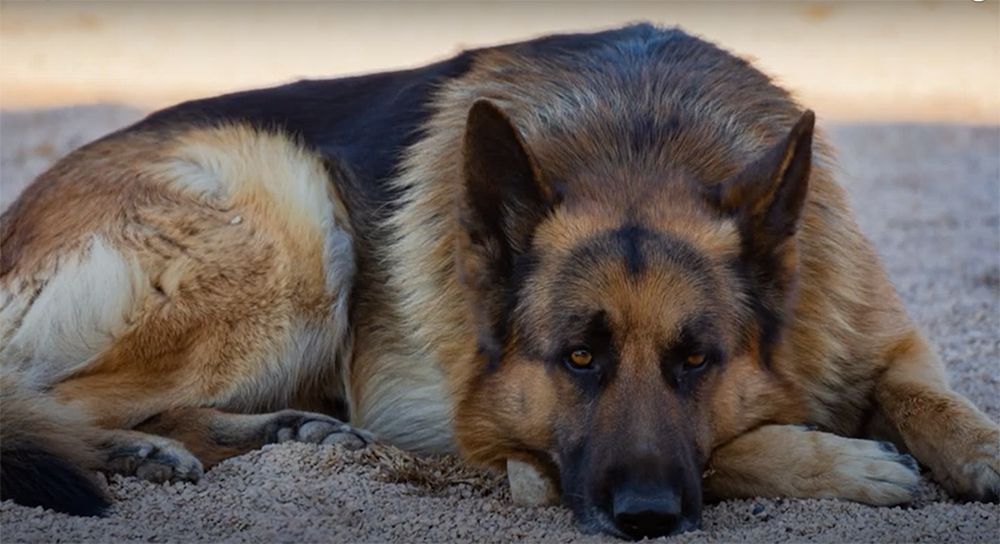
If you want your dog to stop licking the bed, the best thing you can do is ignore them completely when they do it. Once they stop, then you can give them the attention they crave. Dogs are experts at reading our body language and can sense when we’re angry, happy, or upset. So if you give them any type of reaction while they’re licking their bed, they’ll think it’s acceptable behavior.
FAQ
Why does my dog lick my sheets at night?
The answer to this question is a little more complicated than you might think. While there are a few possible explanations, the most likely one is that your dog is trying to tell you something.
Dogs communicate through body language and vocalizations, but they also use scent as a way to relay information. When your dog licks your bedding, they are leaving their scent behind. This is their way of claiming their territory and marking it as theirs.
Another possibility is that your dog is simply trying to get rid of any lingering smells from other people or animals that might be on your bedding. Dogs have an incredibly sensitive sense of smell and can pick up on things that we humans cannot even detect. If there are any strange smells on your bedding, your dog may lick it in an attempt to remove them.
Lastly, some dogs simply enjoy the taste of their owner’s bedding. While this is less likely to be the reason for your dog’s licking behavior, it is still a possibility. If you think this might be the case, try giving your dog a small taste of your bedding and see if they seem to enjoy it.
Why does my dog lick fabric?
There are a few reasons your dog may lick fabric. The most common reason is that they simply enjoy the taste or texture of the fabric. Some dogs will also lick fabric as part of their grooming routine. They may also lick fabric to relieve boredom or stress. If your dog is licking fabric excessively, it may be a sign of anxiety or obsessive-compulsive disorder. If you’re concerned about your dog’s licking behavior, please consult with a veterinarian or animal behaviorist.
Another possibility is that your dog is seeking attention from you. Dogs are very social creatures and often crave attention from their humans. If you think this might be the case, try providing your dog with more attention and see if their licking behavior decreases. [4]
Finally, it’s possible that your dog is licking fabric because they’re ill or in pain. If your dog is displaying other unusual behaviors, please consult with a veterinarian.
Why does my dog eat strange items?
If your dog is eating strange items, it could be a sign that they’re not getting enough nutrients in their diet. Dogs can be prone to pica, which is the urge to eat non-food items. If your dog is eating dirt, rocks, or other non-edible items, it’s critical to visit the veterinarian for a checkup. Additionally, make sure you’re feeding your dog a high-quality diet that meets their nutritional needs.
Why does my dog bite my shoes?
Dogs typically bite shoes because they are smelly and full of your scent. It’s a way for them to comfort themselves when you’re away. If your dog is biting your shoes, provide them with plenty of chew toys and bones to keep their jaws occupied. [5]
Useful Video: Why Do Dogs Lick Their Beds? 11 possible reasons | DogVela
Conclusion
While there are many reasons why dogs lick the beds, it’s important to remember that this behaviour is normal. Unless your dog is displaying other abnormal behaviours or you think there may be a medical reason for their licking, there’s no need to worry. If you’re concerned about your dog’s licking behaviour, the best thing to do is speak to your veterinarian about it. They will be able to help you figure out if there’s an underlying cause and provide guidance on how to stop the behaviour. Thanks for reading!
References:
- https://www.everycreaturecounts.org/why-do-dogs-lick-their-beds/
- https://krostrade.com/blog/why-do-dogs-lick-their-bed/
- https://www.pawesome.net/why-do-dogs-lick-their-beds/
- https://www.akc.org/expert-advice/advice/dog-lick-furniture/
- https://www.cesarsway.com/why-does-my-dog-chew-my-shoes/

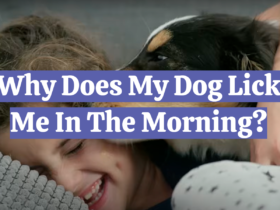


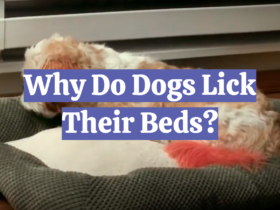
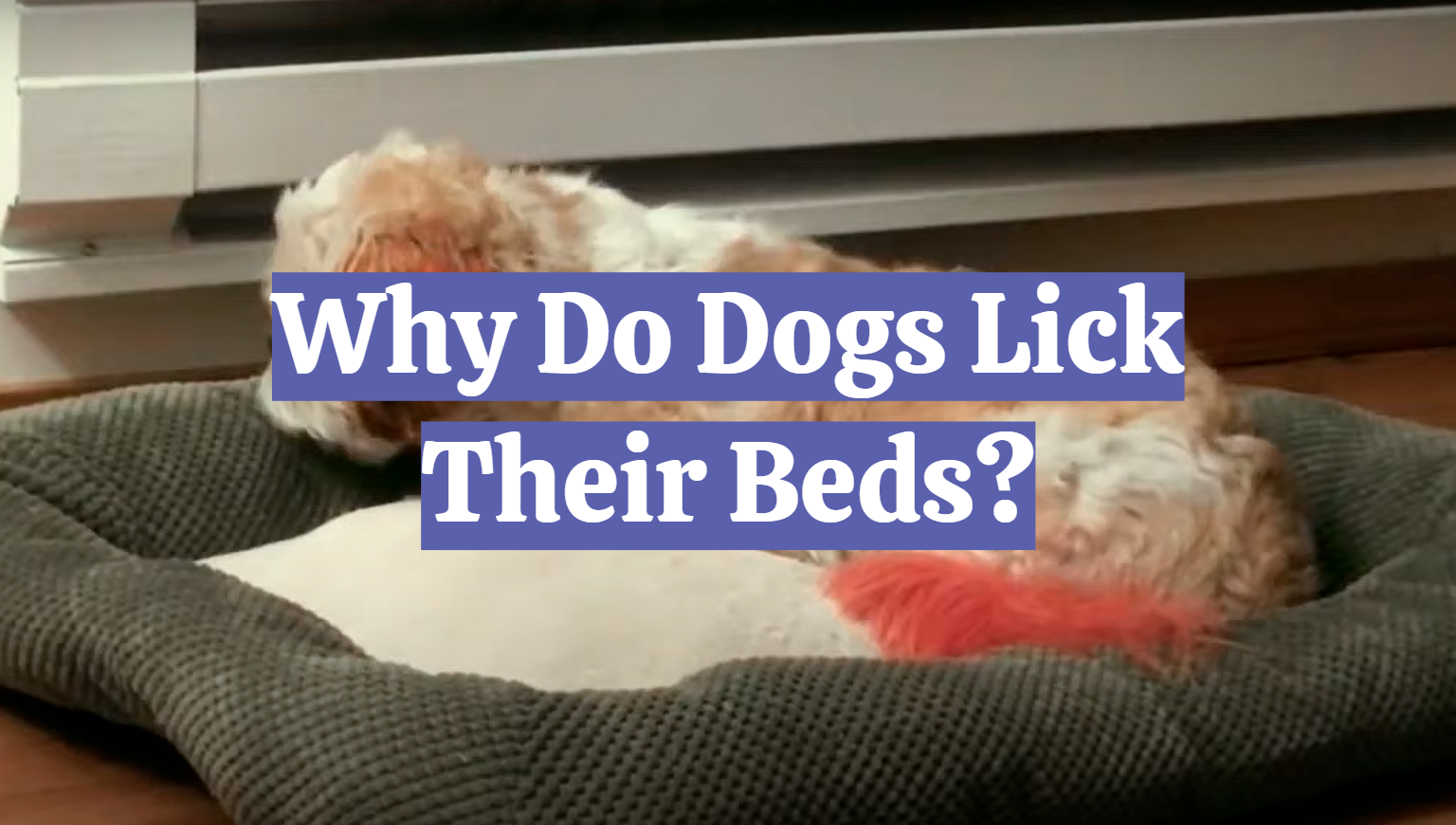




Observing my dog’s habit of licking his bed, I realized it often occurs during moments of relaxation and contentment. It’s like a soothing self-soothing mechanism for him, akin to humans gently tapping their fingers when at ease. This behavior seems to be his way of expressing comfort, turning his bed into a calming haven where licking becomes a comforting ritual before settling down for a nap.
Recently, my dog’s bed-licking tendencies took an interesting turn when I introduced a new member to the family – a playful kitten. I noticed my dog licking his bed more frequently, especially after interacting with the curious feline. It seems like the bed-licking serves as a self-soothing response to the excitement and novelty brought by the new family member. This experience highlighted how dogs adapt their behaviors in response to changes in their environment and social dynamics.
Dealing with a particularly hot summer, I noticed my dog licking his bed more often, especially during the warmer afternoons. It dawned on me that this behavior might be a cooling mechanism. Similar to how humans sweat to cool down, licking could be a way for dogs to spread saliva on their bed, enhancing the evaporation process and providing a bit of relief from the heat. It’s intriguing how dogs instinctively find simple ways to cope with temperature variations.
My dog’s bed-licking became a puzzle during a brief period of separation anxiety. When I returned home after being away, I noticed him intensely licking his bed. It turned out that this behavior was a form of stress relief. The familiar scent and taste of his bed seemed to offer a source of comfort during my absence, highlighting how dogs use their surroundings to cope with emotions and alleviate anxiety.
Recently, my dog’s bed-licking caught my attention during a thunderstorm. It dawned on me that this behavior might be linked to his anxiety during storms. The rhythmic licking seemed to be a coping mechanism, providing a distraction and a sense of control amidst the loud noises and flashes of lightning. It’s a fascinating glimpse into how dogs navigate through moments of fear, utilizing self-soothing behaviors to find comfort in the midst of unsettling situations.
Exploring the reasons behind my dog’s bed-licking habits led me to a surprising discovery related to his dental health. During a period when he was teething, I noticed an increase in bed-licking. Upon consulting with our vet, it became apparent that the act of licking provided relief to his sore gums. It was his way of self-soothing and managing the discomfort associated with the teething process. This insight shed light on how dogs instinctively find ways to address physical discomfort through seemingly mundane behaviors.
Recently, my dog’s bed-licking took on a playful twist during our outdoor adventures. After a romp in the park or a refreshing swim, he would return home and enthusiastically lick his bed. It became apparent that this post-activity licking was a form of celebration and relaxation. The familiar scent of his bed, coupled with the residual tastes from his outdoor escapades, seemed to create a sensory experience that brought him joy and signaled the end of an exciting day.
Dealing with my dog’s bed-licking behavior, I noticed a correlation with his grooming routine. After a thorough grooming session, which included brushing and nail trimming, he would express his satisfaction by licking his bed. It struck me that this ritual was a continuation of his grooming habits, a way to distribute his saliva and maintain a sense of cleanliness. It showcased how dogs integrate self-care practices into various aspects of their daily lives.
My dog’s bed-licking tendencies became apparent during moments of uncertainty or change in our routine. For example, when we moved to a new home, he started licking his bed more frequently. It became evident that this behavior served as a coping mechanism during transitions. The scent and taste of his bed provided a source of familiarity and stability amid the upheaval of a changing environment. It emphasized how dogs rely on their senses to navigate and adapt to new circumstances.
Recently, my dog’s bed-licking took a surprising turn during a family movie night. As we settled in with snacks, I noticed him licking his bed intermittently. It turned out that this behavior was linked to his enjoyment of the shared experience. The act of licking seemed to coincide with moments of excitement or anticipation during the movie. It was a quirky yet endearing aspect of how dogs integrate their surroundings into their emotional responses, turning everyday activities into shared rituals.
Reflecting on my dog’s bed-licking behavior, I observed an interesting pattern during periods of illness. When he wasn’t feeling well, he would spend more time licking his bed. After consulting with the vet, it became apparent that this behavior was a self-soothing mechanism. The act of licking provided a form of comfort and distraction during times of discomfort or pain, showcasing how dogs instinctively find ways to alleviate their own suffering.
Recently, my dog’s bed-licking became a noticeable routine after I introduced a new scented detergent for his bedding. It appeared that he enjoyed the novel fragrance and associated it with a positive experience. The licking behavior seemed to intensify as if he was savoring the scent. This highlighted the impact of scent on a dog’s perception and how they incorporate it into their daily interactions, turning a simple bed into a multisensory experience.